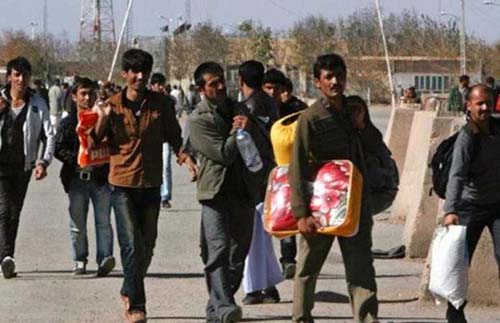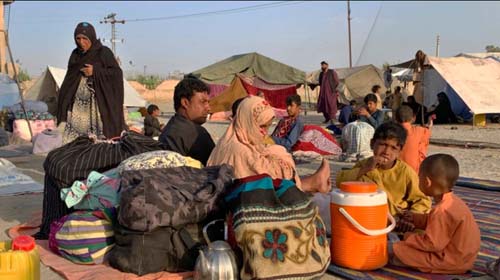
US provides $60 million in 2022 for Afghan refugees in Pakistan, Pakistani host communities
Staff Writer
Islamabad: The United States has provided more than $273 million in humanitarian assistance for Afghan refugees in Pakistan and Pakistani host communities since 2002, a statement from the US embassy in Pakistan said this week.
The statement read that in the fiscal year 2022 alone, Washington provided nearly $60 million in assistance to the refugees and their host communities.

This assistance is being used to increase school enrollment for Afghan and Pakistani children in Khyber Pakhtunkhwa and Balochistan; improve Pakistani healthcare services and boost nutrition programs in areas hosting Afghans. It is also being used to promote livelihood activities for refugees and host communities; improve water, sanitation, and hygiene infrastructure; and support recovery from the health and economic effects of the COVID-19 pandemic.
“The United States is grateful to Pakistan for generously hosting Afghan refugees for more than four decades, and we are proud to continue our support for this worthwhile cause,” US ambassador to Pakistan Donald Blome said in a ceremony in Islamabad.
UNHCR representative to Pakistan Noriko Yoshida thanked the US people for their “generous and compassionate support” to respond to the devastating floods of 2022. According to the representative, the UNHCR was on the ground immediately to provide life-saving relief items to Pakistanis and Afghan refugees during the floods.

UNICEF Representative in Pakistan Abdullah Fadil added: “Thanks to generous support from the United States, UNICEF has been able to make a positive difference in the lives of Afghan refugees and of the Pakistani host communities living next to them.”
Pakistan’s Chief Commissioner for Afghan Refugees, Saleem Khan, also thanked the US administration for their continued support. He said: “We are grateful to the US government for their generous contributions towards the welfare of Afghan refugees in Pakistan and assistance to the host communities.”